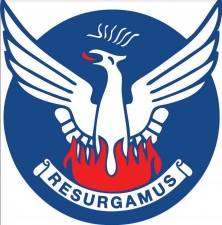Search

 Mid Canterbury’s secondary teachers are joining their national counterparts in voting on possible strike action in support of their claims for improved salaries and working conditions.
Mid Canterbury’s secondary teachers are joining their national counterparts in voting on possible strike action in support of their claims for improved salaries and working conditions.
Branch chairman Mark Gleeson said that votes on a possible strike were being cast this week and the result would to be known by the middle of next week.
Negotiations with the Ministry of Education began in August last year but have now stalled.
Post Primary Teachers’ Association (PPTA) members had lost patience with what they saw as unnecessary delays, Gleeson said.
“There is high demand for secondary teachers in New Zealand and supply is tight. Basic salaries need to increase to attract quality staff.”
The pressure on teachers and their ever-increasing workloads and growing demands on their time meant that part of the conditions claimed related to recognition of a 40-hour working week.
This would mean extra staff would be needed.
Industrial action was not something teachers considered lightly, as their commitment was to being in their classrooms with students, but they had reached a point where they felt they were getting nowhere, Gleeson said.
The PPTA team nationally had recommended industrial action and the current online vote would determine what happened going forward, he said.
If industrial action is supported it will take place in term two.
By Sue Newman © The Ashburton Guardian - 10 May 2019
 As schools increasingly look to fee paying students to boost their income, Ashburton College is planning for a future that could count a roll with more than 30 international students each year.
As schools increasingly look to fee paying students to boost their income, Ashburton College is planning for a future that could count a roll with more than 30 international students each year.
Currently the school has 20 international students from six countries – Taiwan, Germany, Japan, China, Argentina and Korea. And as it works to boost numbers, the number one driver will be to ensure that diversity is retained, principal Ross Preece says.
Fee paying students are becoming big business for schools and there is fierce competition, not just nationally but internationally, with New Zealand competing with Australia, England and Canada in the lucrative market.
Preece believes that building good relationships with school communities in target countries is key in parents choosing a particular country and school for their child.
“We’ve had a couple of students from China, who’ve been very successful, come through the college and we’re now getting their friends’ children coming here. It’s about positive experiences, positive relationships, word of mouth,” he said.
The college was working to grow its international market but it would be doing that in a way that ensured plenty of cultural diversity, rather than drawing students from just one country, Preece said.
“It’s important to us to provide a good cultural mix.”
Using the Ministry of Education’s formula that suggested a school could have five per cent of its roll as international students, the college could have up to 50 students each year, but Preece said he’s happy to set 30 as the school’s goal.
As a rough guide it costs a family $25,000 to send a child to school in New Zealand. That fee includes airfares, accommodation and school fees. The college arranges private accommodation for students with host families paid about $240 a week.
“It’s run as a business and we have a homestay co-ordinator and a dean for students on staff,” Preece said.
Students come to New Zealand for a range of reasons. Some to specific schools because they may offer a sport or education speciality while others come for academic reasons and to gain English language proficiency.
Some came for six months or a year, some for three years, but most between one and two years, he said.
The college had been active in the international student area for a number of years, but the programme had been revitalised over the past three years, Preece said.
By Sue Newman © The Ashburton Guardian - 9 May 2019
 Ashburton College A’s fight to stay in the top flight of the Canterbury secondary schools’ SuperNet competition could not have got off to a better start.
Ashburton College A’s fight to stay in the top flight of the Canterbury secondary schools’ SuperNet competition could not have got off to a better start.
They headed to Christchurch on Sunday and came home with a 29-20 win over Darfield High School and a 32-16 win over Cashmere High School under their belts, and this afternoon they’ll head to Christchurch to take on Rangi Ruru where they hope to make it three-from-three.
Finishing in the bottom three of the top section of SuperNet last year meant that before this season’s competition got under way, Ashburton College A were one of the sides that had to prove themselves if they wanted to stay up.
The bottom three teams from the top section and the top three from the B section were set to play each other in a qualifying round, with the top three at the end of that set to feature in the A section this year.
It’s ended up being five teams though, due to the withdrawal of Ellesmere College.
That left Ashburton College, Rangi Ruru and Kaiapoi High School as the bottom three from the top flight last season, and two of the top teams from the B section last year, Darfield and Cashmere, to fight it out.
College coach Kaye Kennedy said her team has been playing well, but Rangi Ruru won’t be easy.
“They will probably be our toughest competition in this qualifying round, so that could be a tough game for us and we would love to come away with a win,” Kennedy said.
She was happy with her side’s two wins on Sunday, particularly with how many goals they’d scored in shortened games of four eight minute quarters.
“To score 30 goals is pretty good,” Kennedy said.
The wins gave the Ashburton side a bit of breathing space and put them in a strong position to retain their spot in the top grade.
After Rangi Ruru today, they have just Kaiapoi High School left to play on Saturday.
By Erin Tasker © The Ashburton Guardian - 3 May 2019


